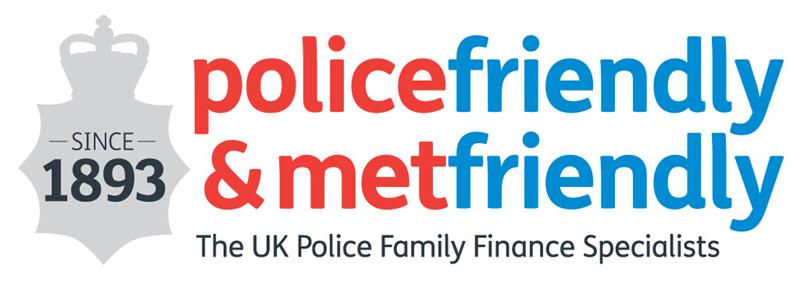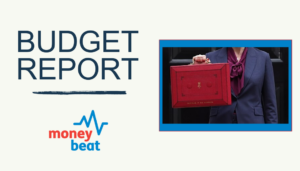Metfriendly’s Kathy, (centre) along with Debbie (left) and Angela (right), both presenters at our Options seminars, were recently set some interesting questions by London Police Pensioner Magazine.
Question 1: When probate on my father’s Estate is sorted, and Inheritance Tax paid etc, I plan to sell his apartment and should achieve around £350,000. My wife and I are in our late 60s and have two married daughters and three grandchildren. What is the most sensible way to deal with this large lump sum so that we all benefit?
Debbie McKnight says: The most important thing to do when you receive an inheritance is to take the time to properly review your finances. A lump sum can offer up many opportunities, but alongside it, can mean that should you die, that there may be more tax to pay.
Taking the time to work out what your Inheritance Tax liability is will often be the first step. You should then consider how best to put the money to use, which is always a very personal decision. It may give the opportunity to reduce debts, or the chance to benefit family or friends.
How you go about benefiting your family will depend on your goals and hopes for the future. A simple update of your Will may be enough. You can also look at outright gifts, or gifts into trust. Each option has its own benefits and downsides so it is important to consider your options carefully.
Before you make any decisions, get advice from a solicitor and a financial adviser so that you know that you are properly covered and whatever plans you do make are the right ones.
 Debbie is Director, Head of Estate Planning Department at Lifetime Solicitors. Debbie has been involved in financial services for 35 years and Estate Planning for the past eight years. Most recently, Debbie has focused on the Estate Planning industry and has extensive knowledge of the sector. She runs regular seminars across the country to offer Estate Planning services to various networks.
Debbie is Director, Head of Estate Planning Department at Lifetime Solicitors. Debbie has been involved in financial services for 35 years and Estate Planning for the past eight years. Most recently, Debbie has focused on the Estate Planning industry and has extensive knowledge of the sector. She runs regular seminars across the country to offer Estate Planning services to various networks.
Question 2: I’ve retired from the Met in the past year and am struggling to find a suitable role. What are the three most important steps I can take to improve my chances?
Angela Hackett says: Ensure your CV is robust and engaging and not just a list of job descriptions. Ensure you are offering absolute clarity on your skills; translating policing language so that it can be properly appreciated. This should be an authentic account of what you personally delivered to each role. This is not a time to be modest, the reader will not just assume you are great!
Are you on LinkedIn? This is an invaluable and modern tool which offers a range of resources if used properly. It encompasses a job board, company profiles for research and the opportunity to network in the least painful way possible. Talk to others without expectation: sadly, no one is going to seek you out and offer you a role. This will allow you to form a view on where your skills might be best utilised and offer an all-important route map or how others have achieved successful moves.
Understand that you are not supposed to ‘just know’ how to transition successfully. A common issue is an expectation that as a Police Officer you should be able to resolve every problem. Having been in a large organisation for many years you may be unused to how recruitment now works; it is a learning curve but one you are more than capable of. Seek professional advice from those who understand policing and crucially have experience of the private sector.
Accept that it is worthwhile to get personal support – it will provide clarity and direction. You, like many people, maybe keen to work hard but all too often we are not always clear what to work hard on. Speak to the team at Police into Private Sector.
 Leading Police into Private Sector, a project she started with three long-serving Officers in 2011, Angela brings a depth of career development expertise. After a decade as a member of police staff, Angela returned as an MPS consultant to deliver leadership programmes and senior Officer coaching, supporting those moving toward s their next career in the private sector.
Leading Police into Private Sector, a project she started with three long-serving Officers in 2011, Angela brings a depth of career development expertise. After a decade as a member of police staff, Angela returned as an MPS consultant to deliver leadership programmes and senior Officer coaching, supporting those moving toward s their next career in the private sector.
Question 3: I have £10,000 to spend, having downsized and sold some decent furniture accumulated over the years. Do I buy a painting or antique that I can pass on to my children in due course? Buy premium bonds? Invest it in an ISA? Or simply head off on a round-the-world luxury holiday? The wife votes for the latter and I think it is very tempting.
Kathy Byrne says: The first thing you should consider is what your priorities are for your £10,000 windfall and what part this plays in your overall finances. Your key decision is whether to spend it now or invest for the future.
As a police pensioner you have a regular income and may well have other sources of income too. If you are not spending all your income you could save some each month for your children’s inheritance, to invest for yourselves or to save for that luxury holiday. If you are spending all your income and don’t already have easy access savings, you might want to consider putting part of the £10,000 in a rainy-day fund to meet unexpected costs. A general rule of thumb used by financial advisers is to have at least three months’ outgoings in an easy access cash fund for this.
Another consideration is the other assets and investments you may hold and what proportion of your overall assets this £10,000 represents. If it is a relatively small percentage, then you might decide to do something speculative with it. If it is a big proportion, then you may want to look at a low risk option.
Investing in Art: Buying a painting or antique for investment purposes is a highly specialist area and as an investment is considered high risk. By buying a single item the return will depend on what someone will pay for it when you want to sell and this depends on how that item is valued, which is subjective. If art is a passion of yours or the return is less important than the art, then this could be the option for you.
Premium Bonds: Advantages of Premium Bonds are that they are guaranteed by the Government and so are completely safe and you have the possibility of winning up to £1 million tax free. The odds of winning for each £1 Bond number are 24,500 to one. This means that the effective interest rate is 1.4%, but returns are not guaranteed, and your actual return could be higher or lower than this. You also need to consider the impact of inflation eroding the real value of your savings over time. The current UK Inflation Rate, as measured by the Consumer Price Index, is 1.9% and so to maintain the purchasing power of your savings over time you need to achieve a return on your savings above the rate of inflation.
ISAs: The advantages of an ISA as an investment is that it is tax free and stays tax free year after year for as long as money is held in it. The amount you can invest in an ISA each year is limited and the limits vary by type of ISA. You can only have one cash ISA and one stocks and shares ISA in the current tax year.
Some ISAs are flexible, which means that you can replace money withdrawn from them in the same tax year without it using up your year’s ISA limit. However, you can transfer money in existing ISAs from previous tax years to a new provider to benefit from potentially better investment performance. You will need to complete an ISA Transfer Form with your new provider to ensure that your ISA continues to be tax free.
There are several different types of ISA to consider, the main decision you need to make is between a Cash ISA and a Stocks and Shares ISA.
Putting money into a Cash ISA is low risk and this is reflected in the returns on offer. Savings are protected by the Financial Services Compensation Scheme (FSCS) for cash deposits up to £85,000. Best cash ISA rates at the time of writing were 1.44% for easy access accounts or 2.12% for a five-year fixed rate. Many cash ISA rates are below the current rate of inflation, which will erode the value of your savings over time.
A Stocks and Shares ISA has the potential to provide higher returns than cash over the long term. There are many different providers which offer a choice of investment options and have different compensation arrangements.
In choosing a provider you may want to consider whether you are happy to make investment decisions yourself, whether you want your provider to make the investment decisions or whether you want to take advice on how to invest.
The FSCS protects investment ISAs if your provider fails, as long as they were authorised by the Prudential Regulation Authority (PRA) or Financial Conduct Authority (FCA) when you took out your ISA. Protection is generally limited to £85,000 per provider, however, investments into Life Insurance products, such as With Profits ISAs, are unlimited. The FSCS only protects you if your provider fails and does not protect against investment losses.
If you want to put money away for your children, depending on their age, you might want to consider a Junior ISA (JISA) for children or grandchildren aged under 16. For those aged between 18 and 39 who you may want to help save for a deposit on their first home, then a Lifetime ISA (LISA) is an option to consider. As well as the usual ISA benefits, the Government adds a 25 % bonus to the account on amounts invested (maximum £4,000 investment pa).
The LISA is a complex product and has restrictions on withdrawals, so it is important to understand these.
Metfriendly was the first company to offer the Lifetime ISA when it started in 2017 and is the only Police member organisation to offer them.
 Kathy is former CEO at Metfriendly. As well as being a qualified actuary, she has found the time to write a book to help us understand the world of savings, establish a new vineyard in Argentina and schedule in two active hobbies… golf and skiing.
Kathy is former CEO at Metfriendly. As well as being a qualified actuary, she has found the time to write a book to help us understand the world of savings, establish a new vineyard in Argentina and schedule in two active hobbies… golf and skiing.
If you’d like to speak with a Metfriendly representative about your personal financial circumstances, you can book a one-to-one consultation.
Article courtesy of London Police Pensioner magazine – September 2019 issue.
[1] Source: NS&I website https://www.nsandi.com/premium-bonds accessed on 24th July 2019
[2] Source: Money Savings Expert website https://www.moneysavingexpert.com/savings/best-cash-isa/
Accessed 24th July 2019. Rates are updated daily.
Share









